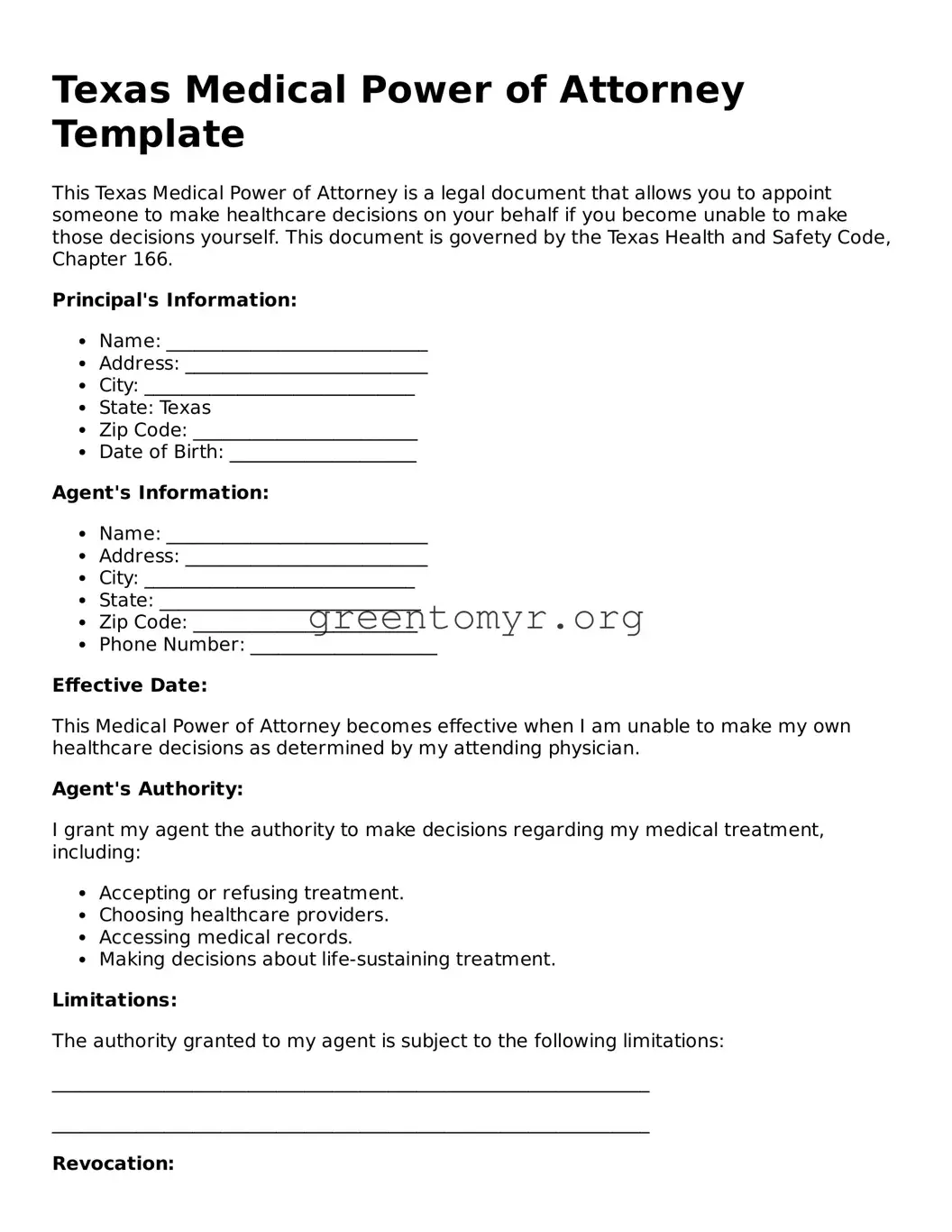Texas Medical Power of Attorney Template
This Texas Medical Power of Attorney is a legal document that allows you to appoint someone to make healthcare decisions on your behalf if you become unable to make those decisions yourself. This document is governed by the Texas Health and Safety Code, Chapter 166.
Principal's Information:
- Name: ____________________________
- Address: __________________________
- City: _____________________________
- State: Texas
- Zip Code: ________________________
- Date of Birth: ____________________
Agent's Information:
- Name: ____________________________
- Address: __________________________
- City: _____________________________
- State: ____________________________
- Zip Code: ________________________
- Phone Number: ____________________
Effective Date:
This Medical Power of Attorney becomes effective when I am unable to make my own healthcare decisions as determined by my attending physician.
Agent's Authority:
I grant my agent the authority to make decisions regarding my medical treatment, including:
- Accepting or refusing treatment.
- Choosing healthcare providers.
- Accessing medical records.
- Making decisions about life-sustaining treatment.
Limitations:
The authority granted to my agent is subject to the following limitations:
________________________________________________________________
________________________________________________________________
Revocation:
This Medical Power of Attorney may be revoked at any time by written notice from me to my agent. The notice must be in writing and may be delivered to my agent.
Signature:
_____________________________________
(Principal's Signature)
Date: _____________
Witnesses:
This document must be signed in the presence of two adult witnesses who are not related to me by blood or marriage and who will not benefit from my estate:
- _____________________________ (Witness #1 Signature)
Name: ________________________
Address: ______________________
- _____________________________ (Witness #2 Signature)
Name: ________________________
Address: ______________________
Notary Public:
State of Texas
County of ____________________
This document was acknowledged before me on the ______ day of ____________, 20___, by ______________________________ (Principal's Name).
_______________________________
Notary Public Signature
My Commission Expires: _____________
